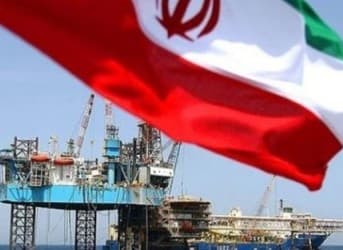Since the U.S. began its “global war on terror” in late 2001 in the wake of al Qaeda’s U.S. attacks, two of its most stalwart Muslim allies have been Turkey and Pakistan. Since then Turkey has provided the Pentagon access to its massive aerial facility in Incirlik, a crucial component in both Iraq and Afghanistan, along with providing troops to the NATO led and U.S. commanded International Assistance Security Force currently battling the Taliban in the latter.
Pakistan has also provided crucial infrastructure logistical assistance to ISAF forces.
But there are now policy divergences between Washington, Ankara and Islamabad over Iran’s civilian nuclear program, which both the U.S. and Israel maintain masks a covert program to develop nuclear weapons, a charge that Tehran strongly denies.
Washington first imposed unilateral sanctions on Iran in 1979 and has more recently led efforts in the United Nations Security Council to impose increasingly stringent sanctions on Iran’s hydrocarbon industries and energy exports.
But it is on the issue of Iranian natural gas imports that both Turkey and Pakistan have diverged from U.S. policy interests, not so much opposing sanctions as – simply ignoring them, putting the Obama administration in the uncomfortable position of ratcheting up pressure and alienating two crucial U.S. allies, more discreetly ignoring the actions, further weakening Washington’s attempts to play sanctions hardball with other nations, while complicating relations with U.S. ally Israel.
Related Article: Chinese Oil Companies Apparent Victors in Post-Saddam Iraq
But both Pakistan and Turkey are motivated not by an attempt to poke a finger in Washington’s diplomatic eyes, but rather, the fiscal realities of their economies.
The U.S. Energy Information Administration has noted of Turkey in its 2011 “Country Analysis Brief,” “As of January 1, 2011, the Oil & Gas Journal estimates Turkish natural gas reserves at 218 billion cubic feet (Bcf). Turkey produced 25 Bcf of natural gas in 2009, relying almost exclusively on imports to meet domestic demand. Turkey's energy demand growth has been among the fastest in the world, although the recent economic downturn dampened some of the growth.”
Iran currently provides 18 percent of Turkey's natural gas imports, with much of the remainder coming from the Russian Federation. Speaking bluntly on 29 November so as to leave Washington in no doubt, Turkish Energy Minister Taner Yildiz says unilateral sanctions imposed on Iran are against the interests of Turkey and his country will not implement them, noting that that Turkey is a member of the United Nations and complies with UN mandates, it does not abide by unilateral sanctions imposed by other countries, emphasizing the importance of oil and gas imports from Iran to Turkey.
Not clear enough? Turkish Economy Minister Zafer Caglayan added that Turkey only abides by international agreements.
Related Article: How Bad do Sanctions Really Hurt Iran?
And Pakistan? On 20 December Pakistani Foreign Minister Hina Rabbani Khar said that President Asif Ali Zardari would soon visit Iran and Prime Minister adviser Asim Hussain noted that the $75 billion Pakistan-Iran Gas Pipeline Project would be completed by the end of 2014 as per the schedule. Iran is so interested in the project that it will foot the entire tab for the pipeline’s construction. The Iran-Pakistan pipeline will allow The 56-inch pipeline will allow Pakistan to import 8.7 billion cubic meters (310 billion cubic feet) of gas annually.
And the diplomatic ripples on the proposed Iran-Pakistan natural gas pipeline extend even to Saudi Arabia, which has traditionally enjoyed good relationships with Pakistan. So concerned is Riyadh over the project that Saudi Ambassador to Pakistan Abdul Aziz bin Ibrahim bin Salih Al Ghadeer extended an invitation Pakistan Foreign Minister Khar to visit Saudi Arabia for “urgent talks,” which she has accepted.
Needless to say, behind the scenes the U.S. has been pressuring Islamabad to abandon the project because of Iran’s nuclear activities, but earlier this month Senator Mushahid said that Islamabad had rejected U.S. pressure as it considered the Iran-Pakistan gas pipeline project an integral element in surmounting the country’s ongoing energy crisis.
ADVERTISEMENT
Given the importance of the two nations to the U.S. war effort in Central Asia, it seems unlikely that the U.S. will offer more than token resistance to both Turkey and Pakistan conducting its “business as usual” energy arrangements with Iran – which, needless to say, will hardly endear Washington to other U.S. allies such as Japan, which are getting a full-court press on the issue.
Chalk up another win for U.S. diplomacy.
By. John C.K. Daly of Oilprice.com


















